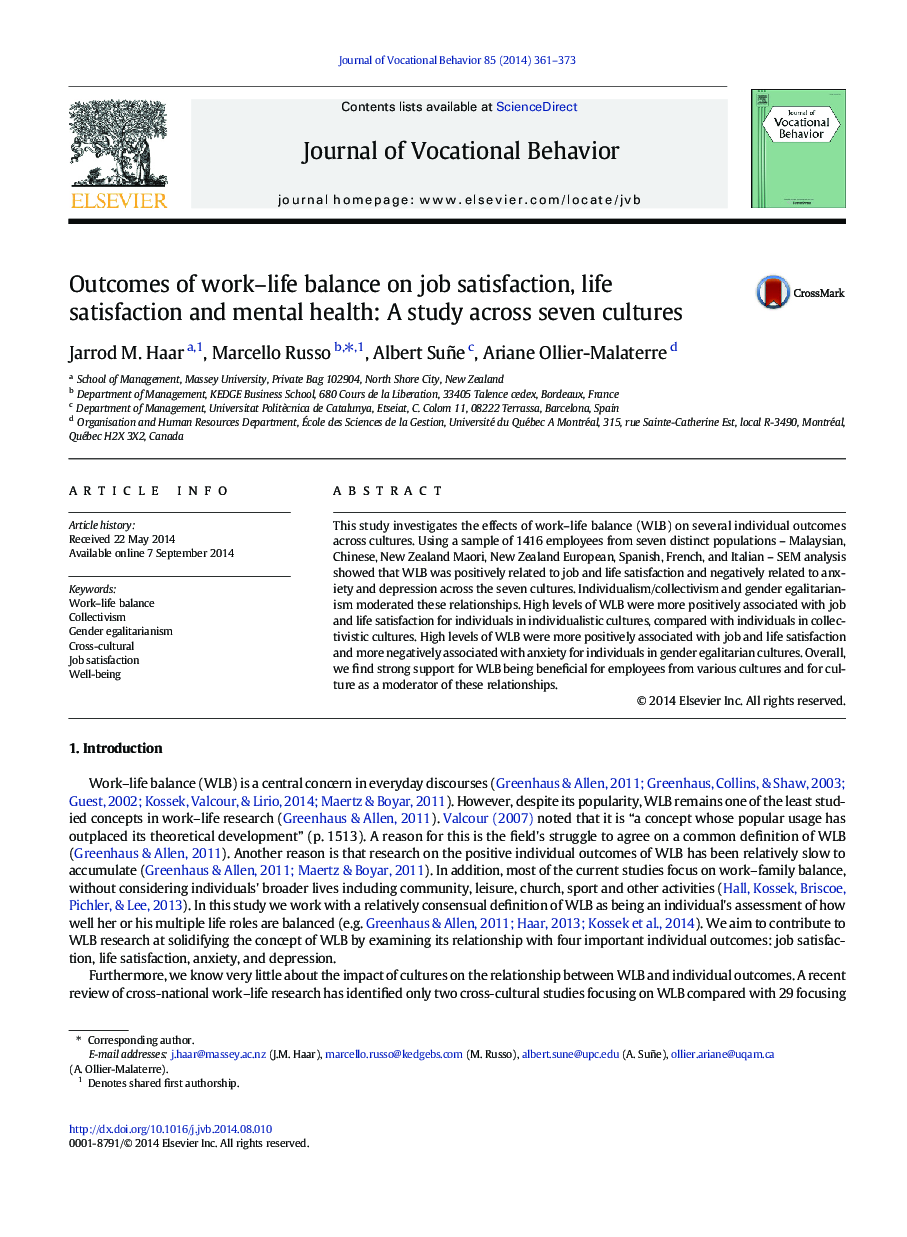| کد مقاله | کد نشریه | سال انتشار | مقاله انگلیسی | نسخه تمام متن |
|---|---|---|---|---|
| 886849 | 913146 | 2014 | 13 صفحه PDF | دانلود رایگان |

• WLB was positively associated with job and life satisfaction.
• WLB was negatively related with anxiety and depression.
• Individualism/collectivism and gender egalitarianism moderated these relationships.
• WLB was more beneficial on the study's outcomes in individualistic cultures.
• WLB was more beneficial on the study's outcomes in gender egalitarian cultures.
This study investigates the effects of work–life balance (WLB) on several individual outcomes across cultures. Using a sample of 1416 employees from seven distinct populations – Malaysian, Chinese, New Zealand Maori, New Zealand European, Spanish, French, and Italian – SEM analysis showed that WLB was positively related to job and life satisfaction and negatively related to anxiety and depression across the seven cultures. Individualism/collectivism and gender egalitarianism moderated these relationships. High levels of WLB were more positively associated with job and life satisfaction for individuals in individualistic cultures, compared with individuals in collectivistic cultures. High levels of WLB were more positively associated with job and life satisfaction and more negatively associated with anxiety for individuals in gender egalitarian cultures. Overall, we find strong support for WLB being beneficial for employees from various cultures and for culture as a moderator of these relationships.
Journal: Journal of Vocational Behavior - Volume 85, Issue 3, December 2014, Pages 361–373